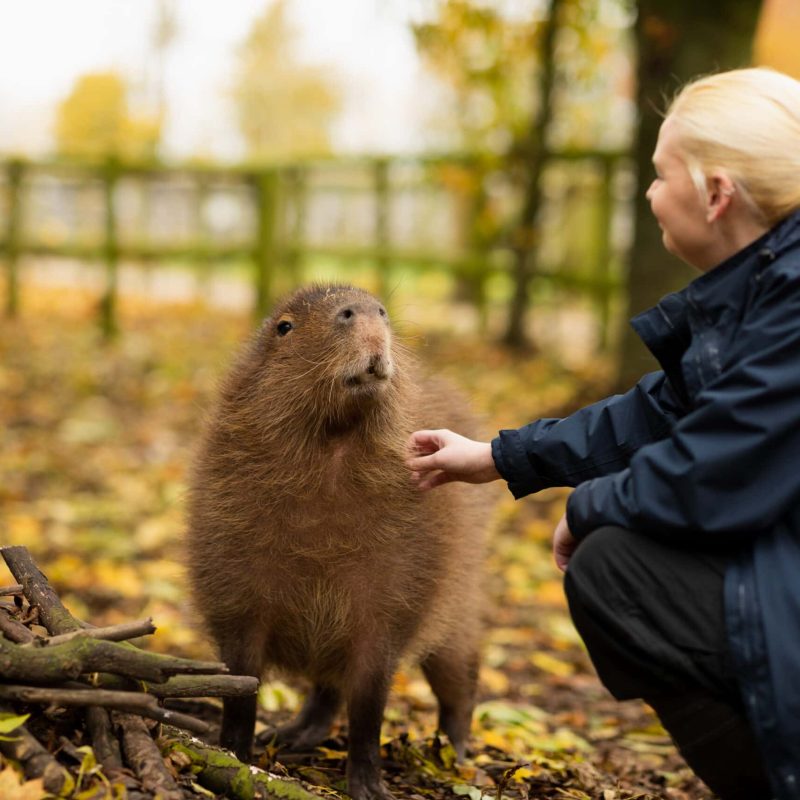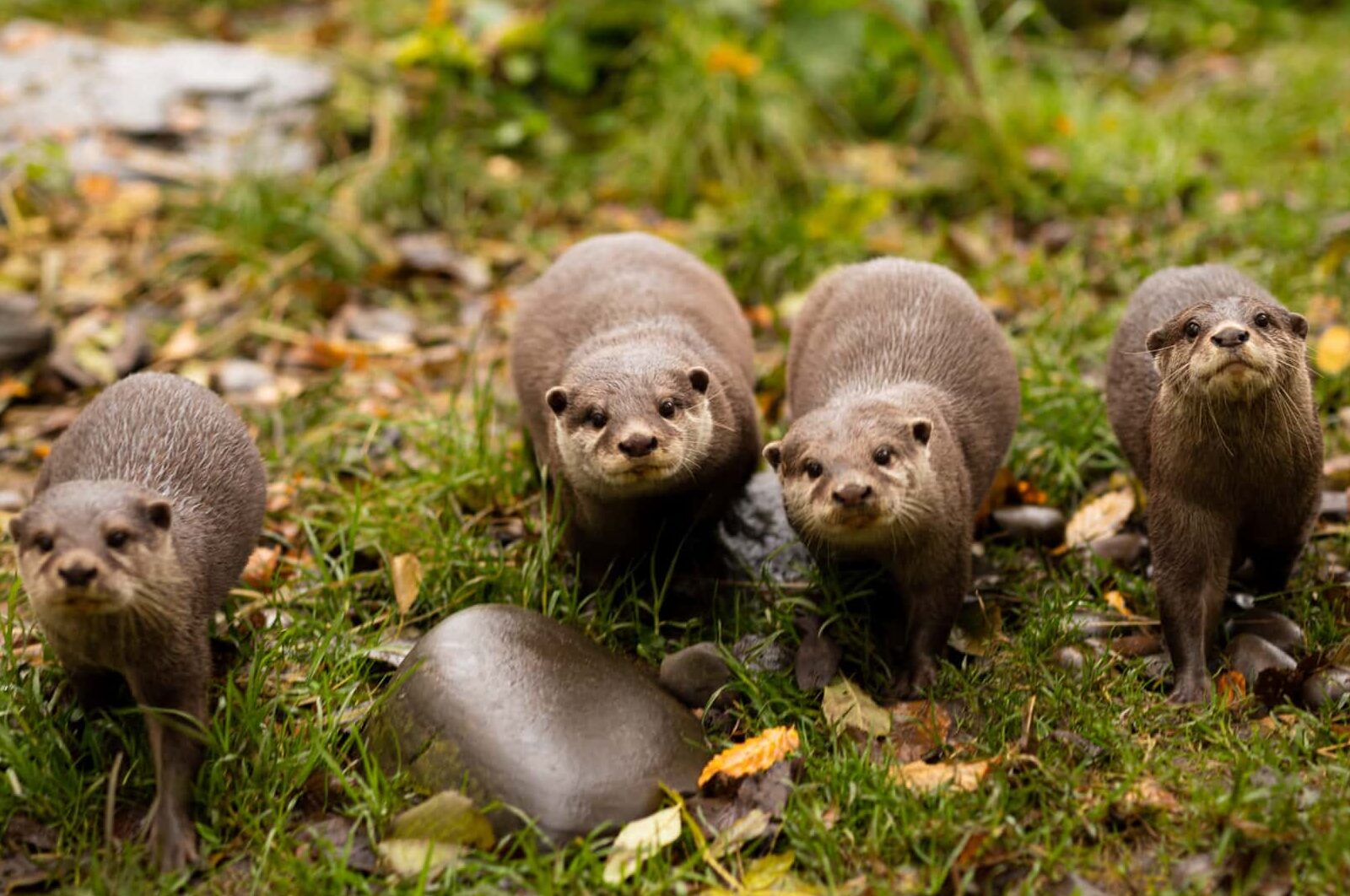Do you want to explore a career with captive domestic or exotic animals that aspires to the highest standards of welfare and behavioural diversity?
As a student on the course, you will have regular access to the zoo-licensed animal centre facilities at University Centre Reaseheath, which boasts a range of exotic zoo species, in addition to domestic species. Additionally, you can expect an interactive and personable learning experience that draws upon the expertise of our team of industry experienced staff.


As part of this course, you will develop a range of academic and professional skills, related to the behaviour and welfare of captive animals.
Through practical husbandry sessions, ethical debates and behavioural observations, you will gain a greater appreciation for the goals and challenges of managing animals in a captive situation. This knowledge can be applied to a diversity of careers, with transferable skills working with animals in large- or small-scale collections.


This course is designed for students who wish to enhance their academic/vocational study beyond the scope of a foundation degree (or equivalent), to include highly specialized learning specific to Animal Management with a behaviour and welfare focus, developing subject specialisms and skills applicable to industry.
Students are expected to study and complete 120 credits, comprising five modules of study at this level. This will include a 40 credit Dissertation module, designed for students to showcase their skills through independent research, but also a diverse range of mandatory and optional modules to enable highly specialist, industry specific skills and knowledge to be developed.
At this level, students will both engage with and apply research-informed study concerning a range of disciplines associated with the successful captive management of exotic species. This will include themes in specialist realms of animal behaviour and intelligence, behavioural & physical rehabilitation zoo research and education, and advanced animal husbandry practices.
Year 1 (Level 6)
* Denotes optional modules. The number corresponds to the combination for selection.
† Dissertation is a double-weighted module, worth 40 credits. Therefore, only five modules are selected for study on this programme.
Please note that availability of optional modules is subject to availability of subject-specialist staff and the recruitment of the minimum viable student number (7 individuals). Should a module not be deemed viable for operation then all students whom selected for that module will be communicated to in writing in advance of the academic year, and will be informed of the alternative options available to select from.
Students will be expected to make their module choices for the following academic year during March/April, via a module selection service. Confirmation of module selections will be provided via email following approval.
Overall workload
Your overall workload consists of class contact hours, independent learning and assessment activity, plus field trips. Your actual contact hours may depend on which optional modules you select, but the following information gives an indication of how much time you will need to allocate to different activities at each year of the course:
Year 1: 15% of your time is spent in timetabled teaching and learning activity
Teaching, Learning and Assessment: 174 hours
Independent Study: 1026 hours
Class sizes average between 8-35 for modules exclusively delivered on the programme. For those modules offered across several programmes, class size could be as high as 90 individual learners.
Percentage of course assessed by coursework
The balance of assessment by examination and assessment by coursework depends to some extent on the optional modules you choose. The approximate percentage of the course assessed by coursework is as follows:
Year 1
60% coursework
40% written exams
Feedback is supplied via Turnitin or directly from the module tutor. The majority of submissions are made via Turnitin and feedback for coursework is provided within twenty working days after the submission date.
Written feedback will be supported verbally should the student require clarification. Formative assessment feedback will be provided at the time of completion where possible, with more detailed summative feedback for reports.
Students will be able to access course timetables for the academic year in September.
Timetables are subject to change, but most students can expect to spend 3-3.5 days per week on campus.
Tuition Fees
As a student at UCR, you will have two main costs to meet; your tuition fees and living costs.
Our full-time tuition fees for UK and EU students, entering University, can be found on our student finance page. These fees are charged for each academic year of a course and are set by the college annually.
Tuition fees for international students can also be found on our student finance page.
Additional Costs
You may have the opportunity to attend day trips or study tours within the UK and overseas. These trips vary each year and costs would be confirmed prior to booking. Examples of tours include 3 day visit to Edinburgh Zoo and Scottish National Museum costing £200 (not including personal expenses) in 2019.
Students may also wish to purchase their own personal copies of recommended set-texts to assist them with their studies. A full list of recommended texts is made available prior to enrolment. However, our campus library boasts sufficient stocks of all major texts to support student learning, frequently in e-book format, and the purchasing of texts is therefore not enforced.
Equipment Costs
Prices of equipment are subject to change dependent on retailer.
Apply directly through UCAS
Foundation degree in Animal Management (Behaviour and Welfare)
September 2022
September 2023
Full-time: 1 year
Here you will find useful information about the services and support available at University Centre Reaseheath. Click to expand each item:
University Centre Reaseheath is committed to providing additional financial support to those who need it. To find out about the bursary schemes available visit our additional financial support page.
For students to get the best out of their time at University Centre Reaseheath, we must both recognise that we owe obligations to each other. These obligations are set out in our UCR Student Contract. Before you accept an offer of a place at University Centre Reaseheath, it is important that you read these contract conditions. If you are going to be living in Halls of Residence, you will also need to read the Student Accommodation Licence Conditions. Both of these contracts can be found here.
Click here to view the University Centre Reaseheath Student Protection Plan.
All UCR students are given the opportunity to apply for residential accommodation. First year students are guaranteed accommodation and this offer is made to all applicants who live more than a reasonable daily travelling distance from Reaseheath (providing you have applied before the UCAS equal considerations deadline. For full details on our halls of residence visit our accommodation page.
We have a team of dedicated professionals on hand to offer you support. These include our Student Services Team, Inclusive Learning Team, Library and Learning Resources Team and the Reaseheath Careers Service. You can find more information on the support provided at Reaseheath on our support page.
University Centre Reaseheath is proud to welcome international students. For more information, please visit our international students page.